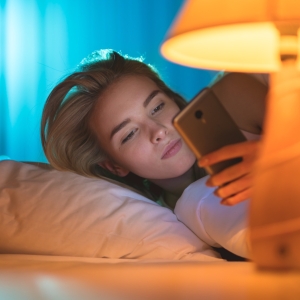The Surprising Ways that Sleep Deprivation May be Affecting You — and How to Get a Better Night's Sleep
March 01, 2018- Practice
If your mental or physical health is suffering, a lack of sleep may be to blame. Are you getting enough shuteye?
Sleep is considered both reparative and restorative, and a full night’s sleep is essential to our overall health and well-being. But with the frenzied pace of work, social obligations and family demands, many people find that they are not getting the proper rest they need on a nightly basis.
As a family practitioner for over 20 years, USC clinical assistant professor Theresa Granger walks us through the drawbacks of sleep deprivation, the benefits of getting more (and better) sleep and the easy lifestyle adjustments we can make to improve our sleep habits and quality of sleep.
USC Suzanne Dworak-Peck School of Social Work: Can you give us an overview of the normal sleep cycle and some common sleep issues that people have?
Theresa Granger: Most people may have heard of REM or non-REM sleep, but few understand what happens during those stages. We’ve long known that sleep is a restorative and reparative process, but recent research has revealed that in order to actually reach the restorative and reparative stages of sleep, you need to sleep deeply.
In order to reap the full benefits of sleep, progression through non-REM sleep into REM sleep is essential. That’s roughly a 90-minute cycle, not counting the time it takes to actually fall asleep. Most people should, if they have the appropriate hours of sleep with no interruptions, go through this cycle about four times a night. Of course, sleep disorders like insomnia disrupt both the quality and quantity of sleep.
If your sleep is continually interrupted or you’re perpetually sleep-deprived, there’s no way to fake your way through it. Common issues that people have are problems falling asleep, poor sleep quality or sleep deprivation. Reasons for this vary.
USC: What exactly is considered a full night's sleep for the average adult? How much sleep do adolescents and younger adults need?
TG: Generally speaking, the older you are, the less sleep you need. Teenagers and young adults need about 7-10 hours of sleep, while adults need somewhere between 7-9 hours. Older adults need less, trending toward 6-8 hours per night.
Children and teenagers need more sleep, in part, because hormones (such as those that support growth and development) are released during sleep. In adults, sleep helps to support the immune system and restore energy.
USC: What are some other concrete benefits of a full night's sleep?
TG: This is a hot topic of research. We know a lot already, but there’s so much more to learn. Concrete benefits of sleep include a balanced appetite, healthier immune system and healthier bodies physically.
Researchers are also focusing on mental health and the cognitive benefits that come along with sleep, such as our ability to form sentences and think cohesively, complete mathematical tasks and perform psychomotor skills. Research has shown that these functions are all directly related to the amount and quality of sleep people get.
USC: Can a lack of sleep have detrimental effects, physically as well as mentally and emotionally? What are some of the most common negative effects of sleep deprivation?
TG: Sleep deprivation can absolutely have negative effects. In healthy people, those issues are largely reversible, but over time — and with the added complications of age and chronic disease — it becomes much harder to get your body back on the right track.
The exact mechanisms are not known and researchers are still working on this. However, we do know that there are connections between poor sleep patterns and obesity and cardiovascular disease. Other negative effects include worsening mood, depression and memory performance.
USC: Is there anything people can do to improve the quality of their sleep?
TG: A lot of people ask me about sleep aids. Clinically, I see an over-reliance on medication. Medication helps people fall asleep but doesn’t necessarily improve sleep quality. What’s more, many of these drugs carry a high potential for addiction. Sleep aids are helpful every so often, but aren’t an adequate replacement for making certain lifestyle changes.
Sleep deprivation can be related to certain habits. Undoing these habits includes re-developing healthier ones. Make sure you’re eating and exercising earlier in the day. While exercising during the day can help you sleep better, working out or eating a large meal too close to bedtime can impact the ability to fall asleep.
The external temperature in your environment also affects sleep quality. An overly warm (or hot) bedroom temperature can lead to difficulty sleeping. Turning your thermostat down is a simple way to create an environment that supports sleep.
Finally, electronic devices keep us from falling asleep at night. It’s a bad habit many of us have — checking social media or watching Netflix as we fall asleep. The blue light from the screen keeps us awake and creates insomnia, so it’s a good idea to not be on your electronic devices at night.
If you’re still having trouble falling asleep, listening to relaxing music can help. Amazon, Pandora and Spotify all have stations and playlists that aid in sleeping, while apps like Sleep Pillow, White Noise, Relax Melodies and Calm are also great for helping you fall asleep.
To reference the work of our faculty online, we ask that you directly quote their work where possible and attribute it to "FACULTY NAME, a professor in the USC Suzanne Dworak-Peck School of Social Work” (LINK: https://dworakpeck.usc.edu)
